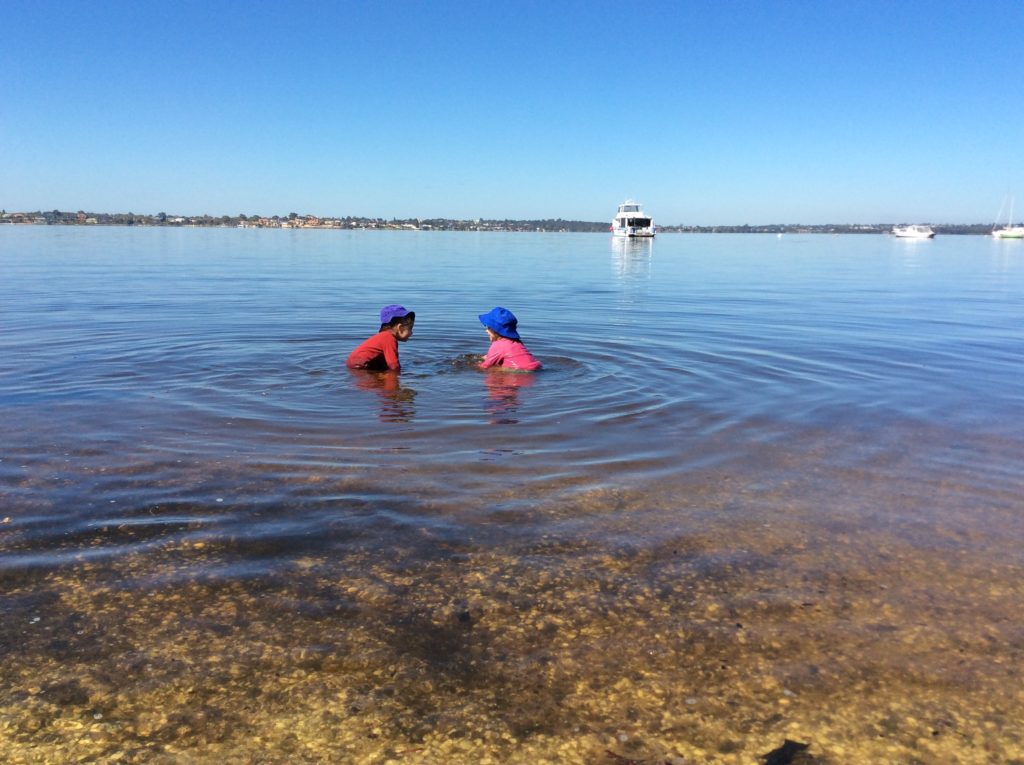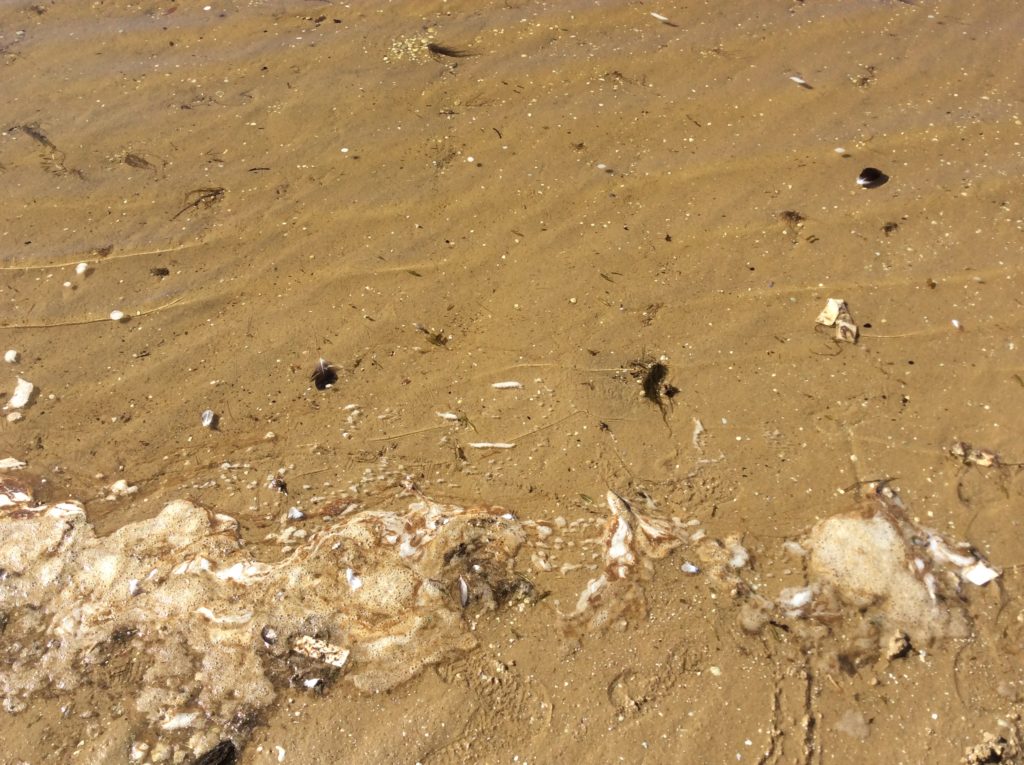16 September 2019
We would like to acknowledge that our walks take place on and with Noongar Country, in what is also now known as Perth, Western Australia, and with Derbarl Yerrigan, in what is also now known as the Swan River.
While walking-with Derbarl Yerrigan we continue to wonder ‘what does it mean to walk-with a permanently polluted Derbarl Yerrigan?’. This walking post sets into motion how we are beginning to notice the mutliples that incite us to respond. Touching, visibility, and smellability are some of the ways we are beginning to pay attention to Derbarl Yerrigan.
We invite you to wonder and notice the multiple modes of knowing that ‘we’ (children, adults, and Djenark) use to walk and think-with Derbarl Yerrigan.
Touching
The girls are shin-deep in Derbarl Yerrigan, with big smiles on their faces. Carefully, they bend down towards the water, placing their fingertips lightly on the water’s surface, and then quickly stand-up, while giggling. Each time they bend down, they go lower, and lower. They are mixing with Derbarl Yerrigan and Derbarl Yerrigan is mixing with them. Touching of all sorts is happening. When they pop-up, their giggles and laughter becoming louder. Soon the girls are squatting in the water, and Derbarl Yerrigan is now up to their waists.
More splashing, more laughing.
But then, one of the girls stops, puts her hands over her mouth and nose. She scrunches her face while mumbling behind her hands, “Ooh, it stinks.” But no one seems to pay attention, and splashing, laughing, and playing continues.
Together we wonder, “How is Derbarl Yerrigan touching these girls?”
Visibility
As we approach Derbarl Yerrigan, one of the adults exclaims, while pointing down towards the shoreline, “Oh my, look at all the rubbish! I need to get the bag. Ok, let’s pick up all the rubbish.”
It’s interesting how adults and children engage with rubbish, the dirty, the smelly, the not-nice. We are good citizens, picking-up bits of paper, plastic, glass, clothing and other small objects that seem out of place. But, are they out of place for Djenark? Does Djenark care?
We work hard at making this place, this shoreline, this walking path neat and tidy. The practice of ‘cleaning up’ is just one hallmark of 20th century pollution control and is based on the politics of purity. These purity practices can be connected to race and social class, which is a form of colonial logics. Unfortunately, picking up rubbish is a practice that fails to address the wider social and political power structures that produce/induce toxicity to begin with. We are not advocating to stop picking up rubbish, but we do think it is important to address this issue. Maybe we can begin to trouble the notion of ‘out of place’. We don’t think it is about not picking up the plastic bag, used piece of newsprint, or food wrapper. Rather it is wondering together and out loud, why it is out of place.
Smellability
“Ooh, that stinks. Yucky.”
‘Attuned sensing’ (Calvillo, 2018) is something we can practice when walking-with a permanently polluted Derbarl Yerrigan. Attuned sensing requires us to ‘monitor our bodily interactions’ with Derbarl Yerrigan, ‘focus on the engagements with and responses to’ the permanently polluted river.
The blowfish carcass is one of many layers of Derbarl Yerrigan. How else might we recognise the smellability of Derbarl Yerrigan?

Perhaps today’s jar of collected water (touching), shells and rubbish (visibility), and the scent of salt, algae, and microscopic bits (smellability) can help us to think with others at the centre about living in a permanently polluted world.
Resources
https://www.healthywa.wa.gov.au/Articles/A_E/Algal-blooms
https://ww2.health.wa.gov.au/Corporate%20search%20results?searchStr=swan%20river&site=mediaReleases








